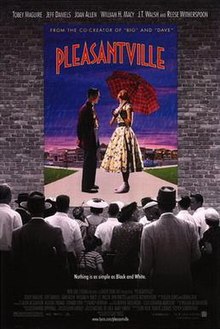
The New Yorker is an American magazine featuring journalism, commentary, criticism, essays, fiction, satire, cartoons, and poetry. The New Yorker was founded on February 21, 1925, by Harold Ross and his wife Jane Grant, a reporter for The New York Times. Together with entrepreneur Raoul H. Fleischmann, they established the F-R Publishing Company and set up the magazine's first office in Manhattan. Ross remained the editor until his death in 1951, shaping the magazine's editorial tone and standards.
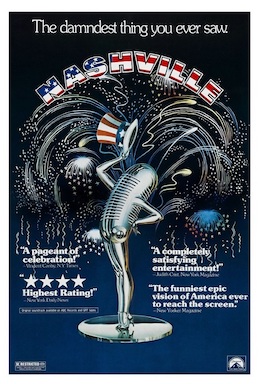
Nashville is a 1975 American satirical musical comedy-drama film directed and produced by Robert Altman. The film follows various people involved in the country and gospel music industry in Nashville, Tennessee, over the five-day period leading up to a gala concert for a populist outsider running for president on the Replacement Party ticket.
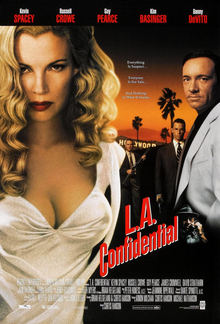
L.A. Confidential is a 1997 American neo-noir crime film directed, produced, and co-written by Curtis Hanson. The screenplay by Hanson and Brian Helgeland is based on James Ellroy's 1990 novel of the same name, the third book in his L.A. Quartet series. The film tells the story of a group of LAPD officers in 1953, and the intersection of police corruption and Hollywood celebrity. The title refers to the 1950s scandal magazine Confidential, portrayed in the film as Hush-Hush.
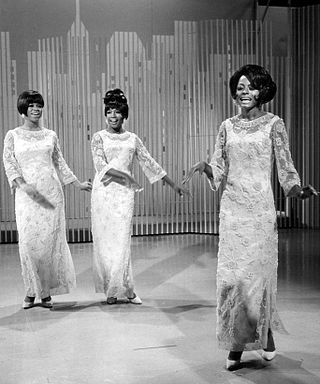
The Supremes were an American girl group and a premier act of Motown Records during the 1960s. Founded as the Primettes in Detroit, Michigan, in 1959, the Supremes were the most commercially successful of Motown's acts and the most successful American vocal band, with 12 number-one singles on the Billboard Hot 100. Most of these hits were written and produced by Motown's main songwriting and production team, Holland–Dozier–Holland. It is said that their breakthrough made it possible for future African-American R&B and soul musicians to find mainstream success. Billboard ranked the Supremes as the 16th greatest Hot 100 artist of all time.

Earl Rudolph "Bud" Powell was an American jazz pianist and composer. A pioneer in the development of bebop and its associated contributions to jazz theory, Powell's application of complex phrasing to the piano influenced both his contemporaries and later pianists including Walter Davis, Jr., Toshiko Akiyoshi, and Barry Harris.

The Man Who Wasn't There is a 2001 neo-noir crime film written, directed, and produced by Joel and Ethan Coen. It stars Billy Bob Thornton, Frances McDormand, Michael Badalucco, Richard Jenkins, Scarlett Johansson, Jon Polito, Tony Shalhoub, and James Gandolfini. The film is set in 1949 and tells the story of Ed Crane, a withdrawn barber who leads an ordinary life in a small California town with his wife, who he suspects is having an affair with her boss. Crane's situation changes when a stranger comes to the barbershop and offers him the opportunity to join him as a partner in a promising new business, in exchange for an investment of ten thousand dollars. Drawn to the idea, Crane plans to blackmail his wife's lover for the money.

Jennifer Jason Leigh is an American actress. She began her career on television during the 1970s before making her film breakthrough in the teen film Fast Times at Ridgemont High (1982). She received critical praise for her performances in Last Exit to Brooklyn (1989), Miami Blues (1990), Backdraft (1991), Single White Female (1992), and The Hudsucker Proxy (1994), and was nominated for a Golden Globe for her portrayal of Dorothy Parker in Mrs. Parker and the Vicious Circle (1994).

Joan Allen is an American actress. Known for her work on stage and screen, she has received a Tony Award as well as nominations for three Academy Awards, a BAFTA Award, three Primetime Emmy Awards, and three Golden Globe Awards.

Molly Helen Shannon is an American actress and comedian. Shannon was a cast member on the NBC sketch comedy series Saturday Night Live from 1995 to 2001. In February 2017, she won the Film Independent Spirit Award for Best Supporting Actress for her role in the film Other People.
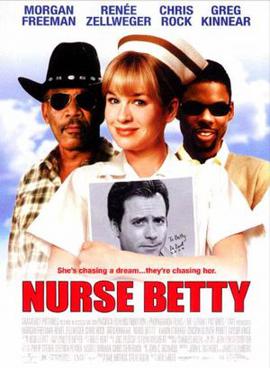
Nurse Betty is a 2000 American black comedy film directed by Neil LaBute and starring Renée Zellweger as the title character, a small town, Kansas housewife-waitress who suffers a nervous breakdown after witnessing her husband's torture murder, and starts obsessively pursuing her favorite television soap opera character, while in a fugue state. Morgan Freeman and Chris Rock play the hitmen who killed her husband and subsequently pursue her to Los Angeles.

Mrs. Parker and the Vicious Circle is a 1994 American biographical drama film directed by Alan Rudolph from a screenplay written by Rudolph and Randy Sue Coburn. The film stars Jennifer Jason Leigh as writer Dorothy Parker and depicts the members of the Algonquin Round Table, a group of writers, actors and critics who met almost every weekday from 1919 to 1929 at Manhattan's Algonquin Hotel.

Urban Cowboy is a 1980 American romantic Western film directed by James Bridges. The plot concerns the love-hate relationship between Buford "Bud" Davis and Sissy. The film's success was credited for spurring a mainstream revival of country music. Much of the action revolves around activities at Gilley's Club, a football-field-sized honky tonk in Pasadena, Texas.
Mary Kay Place is an American actress. She is best known for portraying Loretta Haggers on the television series Mary Hartman, Mary Hartman, a role that won her the 1977 Primetime Emmy Award for Outstanding Supporting Actress - Comedy Series. Her numerous film appearances include Private Benjamin (1980), The Big Chill (1983), Captain Ron (1992) and Francis Ford Coppola's 1997 drama The Rainmaker. Place also recorded three studio albums for Columbia Records, one in the Haggers persona, which included the Top Ten country music hit "Baby Boy". For her performance in Diane (2018), Place won the Los Angeles Film Critics Association Award for Best Actress and the National Society of Film Critics Award for Best Actress.
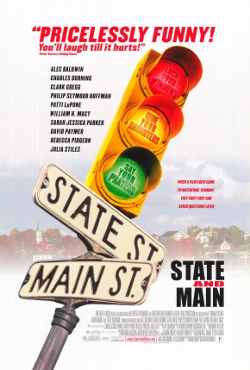
State and Main is a 2000 American comedy film written and directed by David Mamet and starring William H. Macy, Sarah Jessica Parker, Alec Baldwin, Julia Stiles, Philip Seymour Hoffman, Rebecca Pidgeon, David Paymer, Patti LuPone, Clark Gregg, and Charles Durning.

Milk Money is a 1994 American comedy-drama film directed by Richard Benjamin and starring Melanie Griffith and Ed Harris. The film is about three suburban 11-year-old boys who find themselves behind in "the battle of the sexes," believing they would regain the upper hand if they could just see a real, live naked lady.
The 3rd Golden Satellite Awards, given by the International Press Academy, honored the best in film and television for 1998.
The 38th NAACP Image Awards ceremony, presented by the National Association for the Advancement of Colored People (NAACP), honored the best in film, television, music of 2006 and took place on March 2, 2007, at the Shrine Auditorium. The show was televised live on Fox at 8 p.m. EST and hosted by LL Cool J. The nominees were announced on January 7, 2007, at a press conference in at the Peninsula Hotel in Beverly Hills, California. The winners and nominees are shown below. The winners are indicated in bold.
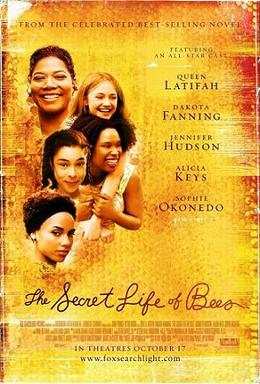
The Secret Life of Bees is a 2008 American drama film adapted from the 2001 novel of the same name by Sue Monk Kidd. Starring Queen Latifah, Dakota Fanning, Jennifer Hudson, Alicia Keys, Sophie Okonedo, and Paul Bettany, the film was directed by Gina Prince-Bythewood and produced by Lauren Shuler Donner and Will Smith, with Jada Pinkett Smith as the executive producer.

Howl is a 2010 American film which explores both the 1955 Six Gallery debut and the 1957 obscenity trial of 20th-century American poet Allen Ginsberg's noted poem "Howl". The film is written and directed by Rob Epstein and Jeffrey Friedman and stars James Franco as Ginsberg.

Nebraska is a 2013 American comedy-drama road film directed by Alexander Payne, written by Bob Nelson, and starring Bruce Dern, Will Forte, June Squibb, Stacy Keach, and Bob Odenkirk. Shot in black-and-white, the story follows an elderly Montana resident and his son as they try to claim a million-dollar sweepstakes prize on a long trip to Nebraska.
